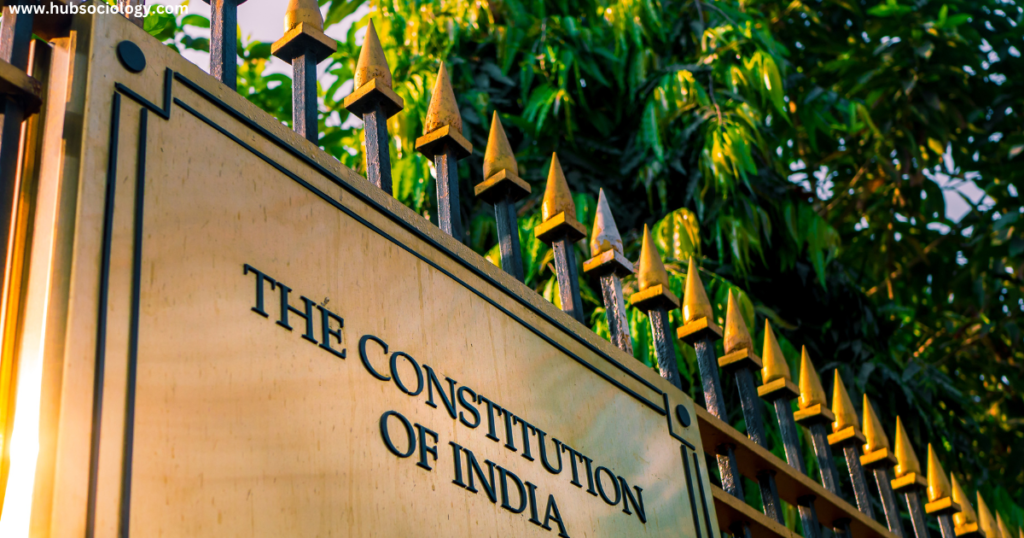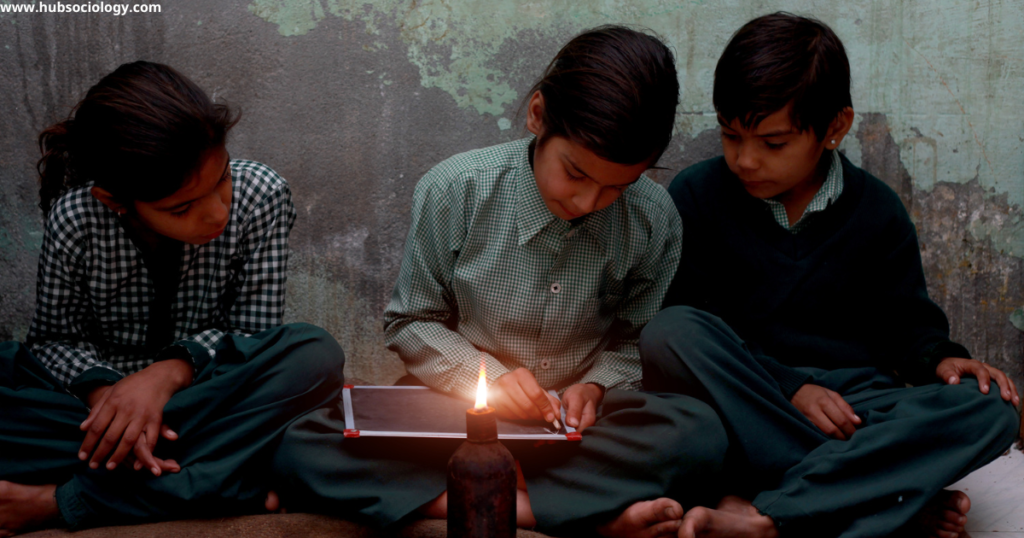Introduction
Fundamental rights are the cornerstone of democratic societies, ensuring the protection of individual freedoms and promoting social justice. From a sociological perspective, these rights are not merely legal provisions but also serve as a foundation for shaping social policies that address inequality, discrimination, and systemic injustices. Social policies, in turn, are instrumental in translating these rights into tangible benefits for marginalized and disadvantaged groups.
This article explores the relationship between fundamental rights and social policy, analyzing how constitutional guarantees influence welfare programs, affirmative action, and social justice initiatives. It also examines the role of the state, civil society, and social movements in ensuring that fundamental rights translate into equitable social policies.

Fundamental Rights and Their Sociological Significance
Fundamental rights, as enshrined in constitutions across the world, typically include the right to equality, freedom of speech, education, health, and livelihood. Sociologically, these rights reflect the collective values of a society and its commitment to human dignity and social justice.
- Right to Equality (Article 14-18, Indian Constitution)
- Sociologically, equality is not just about legal parity but also about addressing structural inequalities.
- Social policies such as reservations (affirmative action) in India aim to rectify historical injustices faced by Scheduled Castes (SCs), Scheduled Tribes (STs), and Other Backward Classes (OBCs).
- Policies like the Right to Education (RTE) Act ensure equal access to schooling, reducing caste and class-based disparities.
- Right to Freedom (Article 19-22, Indian Constitution)
- Freedom of expression and association enables social movements to advocate for policy changes.
- Civil society organizations use these freedoms to push for labor rights, gender justice, and environmental protections.
- Right Against Exploitation (Article 23-24)
- Prohibits forced labor and child labor, leading to policies like the Child Labour (Prohibition and Regulation) Act.
- Sociologically, this right challenges exploitative economic structures that perpetuate poverty.
- Right to Constitutional Remedies (Article 32)
- Allows citizens to seek judicial intervention when rights are violated.
- Public Interest Litigations (PILs) have been used to enforce policies on environmental protection, healthcare, and housing rights.
Fundamental Rights as the Basis for Social Policy
The purpose of social policy is to guarantee wellbeing and meet societal demands. Fundamental rights provide the ethical and legal framework for these policies. Some key areas where rights influence social policy include:
1. Education Policies
- The Right to Education (RTE) Act (2009) in India mandates free and compulsory education for children aged 6-14.
- Sociologically, this policy aims to break the cycle of intergenerational poverty by ensuring access to education for marginalized communities.

2. Health and Nutrition Policies
- The Right to Health is implicit in the Directive Principles of State Policy (Article 39, 42, 47).
- Policies like the National Health Mission (NHM) and Midday Meal Scheme address malnutrition and healthcare disparities.
- The National Food Security Act (2013) resulted from the Supreme Court’s involvement in the Right to Food case (PUCL vs. Union of India, 2001).
3. Affirmative Action and Social Justice
- Reservation policies in India are derived from the Right to Equality (Article 15 & 16).
- These policies aim to correct historical injustices by providing representation in education, employment, and politics.
- Sociologically, reservations have led to social mobility but also face criticism for perpetuating caste identities.
4. Gender Justice and Women’s Rights
- Article 15(3) allows for special provisions for women, leading to policies like:
- Beti Bachao Beti Padhao (girl child education)
- Domestic Violence Act (2005)
- Maternity Benefit Act (2017)
- Feminist movements have used fundamental rights to challenge patriarchal norms and demand policy reforms.
5. Labor and Employment Policies
- Article 23 (prohibition of forced labor) and Article 43 (living wage) influence labor laws like:
- Minimum Wages Act (1948)
- Mahatma Gandhi National Rural Employment Guarantee Act (MGNREGA, 2005)
- These policies aim to reduce economic exploitation and ensure livelihood security.
Challenges in Translating Rights into Policies
Despite constitutional guarantees, several sociological challenges hinder the effective implementation of rights-based social policies:
- Structural Inequalities
- Caste, class, and gender hierarchies prevent marginalized groups from accessing their rights.
- Example: Despite RTE, dropout rates among Dalit and Adivasi children remain high due to discrimination.
- Bureaucratic and Political Barriers
- Corruption and inefficiency in welfare schemes (e.g., leakages in PDS).
- Politicization of reservations and welfare policies for electoral gains.
- Judicial Delays and Lack of Awareness
- Many citizens are unaware of their rights, limiting their ability to demand policy benefits.
- Judicial backlog delays justice in rights violations.
- Neoliberal Economic Policies
- Privatization of health and education reduces accessibility for the poor.
- Example: High fees in private schools exclude low-income families despite RTE’s 25% reservation for disadvantaged groups.
Role of Civil Society and Social Movements
Civil society organizations (CSOs) and social movements play a crucial role in bridging the gap between fundamental rights and social policies:
- The Right to Information Act (2005) was promoted by NGOs such as Mazdoor Kisan Shakti Sangathan (MKSS), which increased government transparency.
- Feminist movements pushed for laws against domestic violence and workplace harassment.
- Dalit and Adivasi movements continue to demand effective implementation of reservation and land rights policies.
Conclusion
Fundamental rights serve as the moral and legal foundation for social policies aimed at achieving equity and justice. From a sociological perspective, these rights are not static but evolve through struggles, judicial interpretations, and policy reforms. While significant progress has been made in areas like education, health, and affirmative action, structural barriers persist.

For rights-based social policies to be truly effective, the state must ensure efficient implementation, civil society must hold authorities accountable, and citizens must be empowered to claim their rights. Only then can constitutional ideals translate into real social transformation.
Highly Recommended Books
- Social Policy: Themes and Approaches by Paul Spicker – Amazon Link – https://amzn.to/45DSFOY
- Sociology: A Guide to Problems and its Literature by T.B. Bottomore – Amazon Link – https://amzn.to/4dMG7ah
- PUBLIC POLICY AND POLITICS IN INDIA by Kuldeep Mathur – Amazon Link – https://amzn.to/4jxlUXe
Topic Related Questions
5-Mark Questions (Short Answer Type)
- Define fundamental rights and explain their role in shaping social policies.
- How does the Right to Equality (Article 14-18, Indian Constitution) influence social policies?
- Briefly discuss the impact of the Right to Education (RTE) Act on social equity.
- What is the significance of the Right Against Exploitation (Article 23-24) in labor policies?
- How do fundamental rights empower marginalized communities through social policies?
10-Mark Questions (Detailed Answer Type)
- Discuss how fundamental rights act as a foundation for affirmative action policies in India.
- Analyze the role of the Right to Constitutional Remedies (Article 32) in shaping social justice policies.
- Explain the relationship between Directive Principles of State Policy (DPSP) and social welfare programs.
- How have judicial interventions (like PILs) strengthened the link between fundamental rights and social policies?
- Critically examine the challenges in implementing rights-based social policies in India.
15-Mark Questions (Essay-Type/Long Answer)
- “Fundamental rights are not just legal guarantees but also tools for social transformation.” Discuss this statement in the context of Indian social policies.
- Evaluate the impact of fundamental rights on gender justice policies in India, citing relevant laws and movements.
- How do caste and class dynamics affect the implementation of rights-based social policies in India?
- Compare the role of the state and civil society in ensuring that fundamental rights translate into effective social policies.
- “Social policies in India are deeply influenced by constitutional rights but face structural barriers.” Critically analyze this statement with examples

2 thoughts on “Fundamental Rights as a Source of Social Policy: A Sociological Perspective”